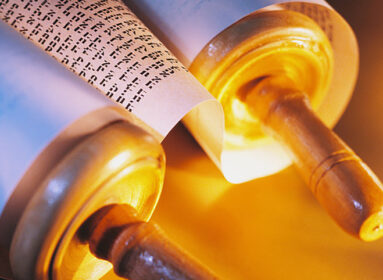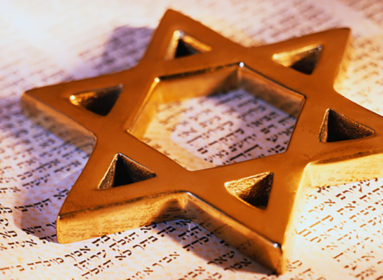By Rabbi Tzvi Hersh Weinreb
Have you ever been asked the question, “What is your earliest memory?”
I have been asked that question many times. Considering the question posed, I had a clear image of my first memory. I was standing outside a brick building, looking up at my father, may he rest in peace, surrounded by a small crowd of other men. Everyone was looking at the moon.
This may have been my first experience, at age three or four, of Kiddush Levana, the monthly ceremony during which the congregation exits the synagogue and acknowledges the first appearance of the new moon.
I have another memory of the religious significance of this ceremony. I remember being told that the Hebrew word for “month” is “chodesh” and the Hebrew word for “new” is “chadash”. It was then that I learned of the significance of the new moon, which commences a new month, and became aware for the first time that the Jewish people follow the lunar, not solar, calendar.
This week, we read the Torah portion of Tazria. But since it is also the very last Sabbath before the new moon of the month of Nisan, the month of Passover and springtime and the beginning of the new calendar year, we will also read an additional portion from Exodus 12:1-20, known as Parshat HaChodesh. Famously, according to Rashi, these verses are the true beginning of the Torah.
The theme of newness and the constant potentiality for renewal is the central theme this Shabbat. It is also the central theme in the Jewish calendar, and, one might say, in Jewish tradition in general. The symbolism of the moon constantly renewing itself is coupled this week with the symbolism of springtime and nature’s renewal.
This Shabbat, we herald the approaching holiday of Passover, but not as a holiday of freedom and redemption. Not just yet. This week, we recognize that Passover is chag ha’aviv, the festival of springtime. Passover has a myriad of symbolic meanings, one of which is the perennial opportunity for personal and national rejuvenation.
I remember what the men who surrounded me under that moon so long ago were saying to each other. Each man addressed three others with the traditional Jewish greeting, “shalom aleichem.” I remember being puzzled by why Daddy was greeting friends that he saw daily with this special welcome, generally reserved for those whom one hadn’t seen in a while. I didn’t ask him about it then, but I have since answered the question for myself, and have explained it to my children and to my students as follows:
“The new moon is a symbol for renewal. It is a time for each of us personally to begin again, to forget past mistakes, to ‘turn over a new leaf’. It is also a time for us to renew and recharge our relationship with others. It is a time to begin a new slate, to forgive each other, and to appreciate each other anew. Hence, we greet at least three friends, even old friends, with a ‘shalom aleichem,’ as if they were newcomers in our lives.”
Is there any connection between the supplemental Parshat HaChodesh and this week’s main Torah portion, Tazria?
I would say so, for this week’s Torah portion begins, “Speak to the children of Israel, saying: ‘If a woman conceives and bears a male child, she shall be unclean seven days… and on the eighth day, the flesh of his foreskin shall be circumcised.’” (Leviticus 12:1-3) The opening theme this week is also one of a new beginning, of a birth of a new baby. It is a time for the celebration of the entry of a new member into the Jewish people. Hence, there is surely a connection between Tazria and Parshat HaChodesh. They both adumbrate the centrality of the new in our tradition.
You might well ask, “If we are celebrating not just newness in general, but the arrival of a new human being into this world and of a new member of the Jewish faith, then why does the mother enter the realm of tumah, ritual uncleanness? Should she not, rather, enter the realm of kedushah v’taharah, sanctity and cleanness?”
I found a most thought-provoking answer to this oft-asked question recorded in the name of that most profound of Chassidic masters, Rabbi Mendel of Kotzk. He cites the passage in the Talmud that states that the “keys of childbirth” are kept by the Almighty Himself. It is He who presides, as it were, over “labor and delivery.” Once the baby is born, His Presence departs as well. Just as when the soul of man departs, tumah descends, so too when the Divine Spirit departs, tumah ensues.
The Kotzker Rebbe once again teaches a very deep, albeit existentially pessimistic, lesson. Perhaps one must be Rabbi Mendel of Kotzk to truly understand why he forces us to face darkness even at the moment of joyous celebration of birth.
For most of us, on the other hand, this week’s lesson is of light, and not of darkness. It is an occasion to contemplate all that is new in our natural and interpersonal environments, especially at this time of year. It is an opportunity to seize the moment by taking advantage of the constantly available potential for renewal of ourselves and of our friendships and relationships.
Rabbi Tzvi Hersh Weinreb is executive vice president emeritus of the Orthodox Union.









 Southern New England Jewish Ledger
Southern New England Jewish Ledger














